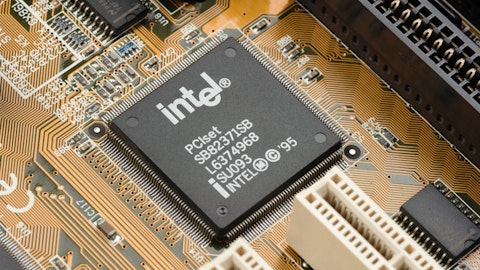Last week’s rumors have turned into Monday morning reality as Dell announced its $67 billion purchase of EMC Corporation (NYSE:EMC). EMC’s shares are up by 1.79% in morningtrading following the revelation of its purchase. While the record tech deal is certainly intriguing in its own right, it’s all the more so to us given that it once again shows off the clout of activist investors in their ability to exert pressure and stimulate change at even the largest of companies.

Following activist funds is important because it is a very specific and focused strategy in which the investor doesn’t have to wait for catalysts to realize gains in the holding. These funds can simply create their own catalysts by pushing for them through negotiations with the company’s management and directors. In recent years, the average returns of activists’ hedge funds have been much higher than the returns of an average hedge fund. Furthermore, we believe do-it-yourself investors have an advantage over activist hedge fund investors because they don’t have to pay 2% of their assets and 20% of their gains every year to compensate hedge fund managers. We have found through extensive research that the top small-cap picks of hedge funds are also capable of generating high returns and built a system around this premise. In the 37 months since our small-cap strategy was launched it has returned over 102% and beaten the S&P 500 ETF (SPY) by more than 53 percentage points (read more details).
The purchase by privately-held Dell will further push its focus away from the sluggish PC market and into the much more lucrative and exciting enterprise solutions segment. Indeed, Dell Founder Michael Dell, who will lead the merged company as its Chairman and CEO, said the tie-up will “create an enterprise solutions powerhouse”. Although EMC will have the option to solicit better offers from other bidders, Dell’s offer isn’t expected to be topped by the likes of International Business Machines Corp. (NYSE:IBM) or Hewlett-Packard Company (NYSE:HPQ), two potential suitors for the storage company.
Follow Emc Corp (AMEX:EMC)
Follow Emc Corp (AMEX:EMC)
Receive real-time insider trading and news alerts
One other notable aspect of the deal is that the combined Dell/EMC Corporation (NYSE:EMC) entity will spin-off EMC’s 80% ownership stake in VMware, Inc (NYSE:VMW) into a tracking stock. A spin-off of EMC’s VMware stake was long sought by Elliott Management, headed by billionaire Paul Singer, which began pushing for the move over a year ago after taking a large stake in EMC. Elliott Management, which maintained a 33.6 million-share position in EMC as of June 30, was exerting more pressure recently on EMC to break itself up, which may have driven the company to accept Dell’s offer. Elliott Management issued a press release this morning expressing its support for the deal.
Follow Paul Singer's Elliott Management
However, as we’ll see on the next page, not everyone is impressed by the offer.
As mentioned, not everyone is thrilled by the offer, or the move to turn VMware, Inc (NYSE:VMW) into a tracking stock. FBR & Co’s Daniel Ives described the deal as “a “bad dream” for EMC shareholders and more of a nightmare for VMW investors”, suggesting that a deal in the $35-$38 range would be fair valuation for EMC Corporation (NYSE:EMC) and its VMware, Inc (NYSE:VMW) stake. The $67 billion deal is worth $33.15 per share.
Follow Vmware Llc (NYSE:VMW)
Follow Vmware Llc (NYSE:VMW)
Receive real-time insider trading and news alerts
As of June 30, shareholders in our database were not very bullish on VMware, the shares of which are down by 8.44% this morning as investors clearly don’t like the implications of the deal for the company and its shareholders. The elite investors that we track held just 2.00% of the company’s stock on that date, worth $740 million. Matt Sirovich and Jeremy Mindich’s Scopia Capital was the largest shareholder among the 35 investors that we track which held long positions in the stock, owning 1.79 million shares.
On the other hand, 54 investors that we follow held 5.00% of EMC’s shares, worth $2.54 billion. Singer’s firm was the largest shareholder among those, followed by John A. Levin’s Levin Capital Strategies with 9.12 million shares and Ken Griffin’s Citadel Investment Group with 5.00 million shares.
Disclosure: None


